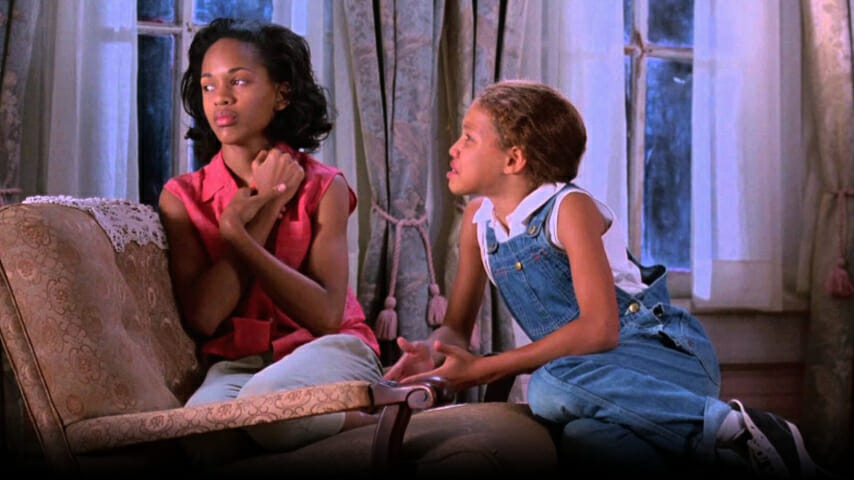5 Great Films by Black Filmmakers
Enjoy one of our favorites from the Paste Vault, originally published 4/15/2018
Movies Lists Black Film
Since the birth of motion pictures, Tinseltown’s issue with representation has been glaring especially when it comes to Black people and culture. The “race” films like Cabin in the Sky and 1927’s Uncle Tom’s Cabin are dripping with demeaning stereotypes meant to satisfy mainstream America. Even though Black performers like Sidney Poitier and Dorothy Dandridge have been recognized, Black filmmakers of the time had been largely ignored. The release of 1969’s The Learning Tree by legendary photographer and filmmaker Gordon Parks shifted attitudes about the viability of Black filmmakers somewhat, but even the success of films like Black Panther and Wrinkle in Time hardly represent a balancing of the scales when it comes to Hollywood’s record of focusing only—when it focuses at all—on rote narratives of suffering, slavery and trying to escape the ’hood. Still, during this period there have been some films by black filmmakers that have managed to get made even though they were on different topics.
Here are a few great films by Black filmmakers worth checking out:
5. House Party (1990)
Director: Reginald Hudlin

Originally meant as a vehicle for DJ Jazzy Jeff and the Fresh Prince, this high school romp follows two best friends (hip-hop duo Kid ’n Play) as they get ready to throw an epic house party. Featuring a cast filled with up-and-coming actors and hip-hop stars, the audience gets to see if, between his no-nonsense father (the late Robin Harris) and his dimwitted bullies (Full Force), Kid can survive the night. Between Hudlin’s keen direction and a hip-hop drenched soundtrack, the film is filled with infectious energy and originality that captures the life of Black American teens in the late 1980s and early 1990s.
4. Antwone Fisher (2002)
Director: Denzel Washington

Inspired by former U.S. Navy member Antwone Fisher’s autobiography, the biopic centers around Fisher (played by Derek Luke) coming to terms with his violent and abusive past. His quest to find forgiveness allows him to find the family that abandoned him. Denzel Washington’s phenomenal acting translates to a great directorial debut as each scene manages to capture the emotional turmoil in Fisher’s life.
3. School Daze (1988)
Director: Spike Lee

Arriving in theaters around the same time as the HBCU-themed hit series A Different World, Lee’s second feature film taps into Black fraternity and sorority life on the Mission College campus. Featuring Lee both in front of and behind the camera with a now-renowned cast of up-and-comers headed by Laurence Fishburne, the film speaks on many issues within the African-American community (i.e., colorism, beauty standards, college activism) in an educated, relatable way. By the end of the film, everyone is left questioning their positions within the fractured HBCU.
2. Love Jones (1997)
Director: Theodore Witcher

With quite a few ’hood classics between them (Menace II Society, Dead Presidents, Boyz N the Hood, Friday), leads Larenz Tate and Nia Long play up the romantic tension against a background of 1990s poetry slam culture in this sophisticated drama. Smart writing, clever direction and a sophisticated soundtrack of atmospheric jazz and R&B allows Darius (Tate) and Nina (Long) to explore the nuances of a causal relationship. For a directorial debut, Witcher manages to give a realistic ending without using ebonics or gunplay to ground it.
1. Eve’s Bayou (1997)
Director: Kasi Lemmons

With slice-of-life in the ’hood films and romantic comedies being served in rapid succession in the late 1990s, Lemmon’s directorial debut is a tour-de-force flaked by outstanding performances from Jurnee Smollett, Debbi Morgan, Samuel L. Jackson and Lynn Whitfield. Smollett’s Eve Batiste experiences a chaotic and confusing summer of family revelations. Between her father’s profound infidelity and her older sister’s burgeoning womanhood, the 10-year-old begins relying on fortune telling and voodoo to right her family’s wrongs. But even though tragedy strikes the family in the end, there is a sense of rebirth for Eve and her sister.